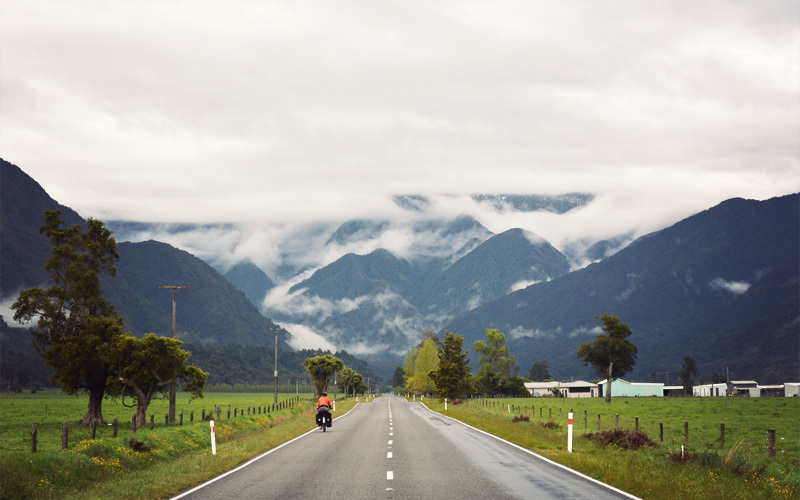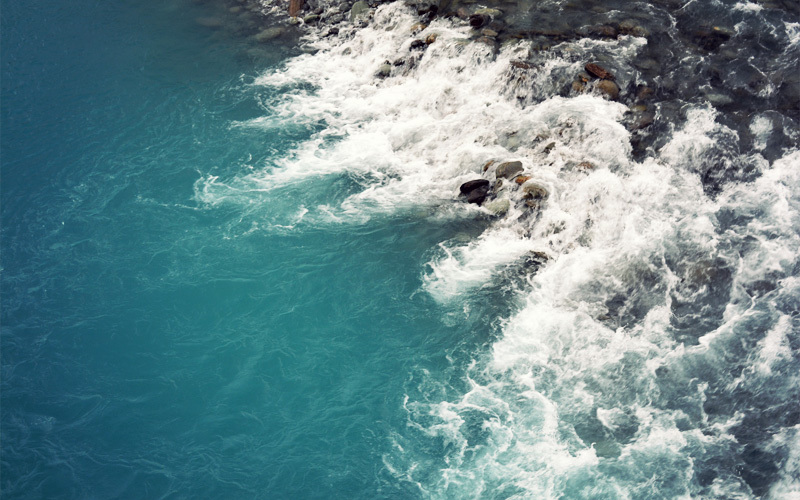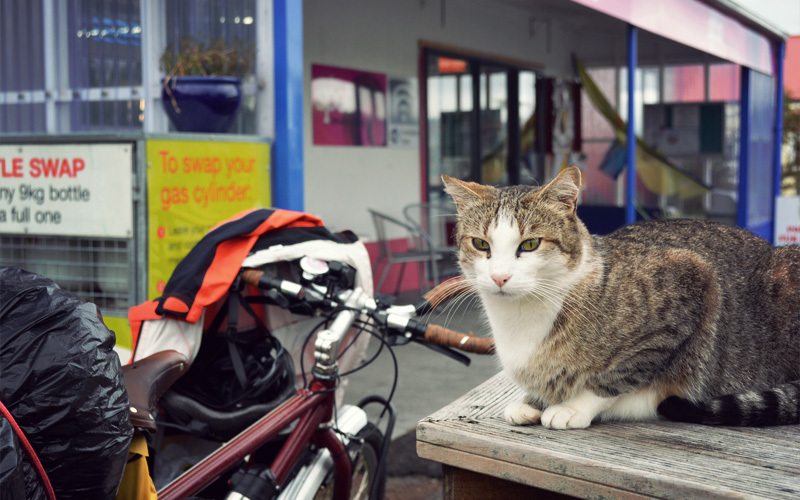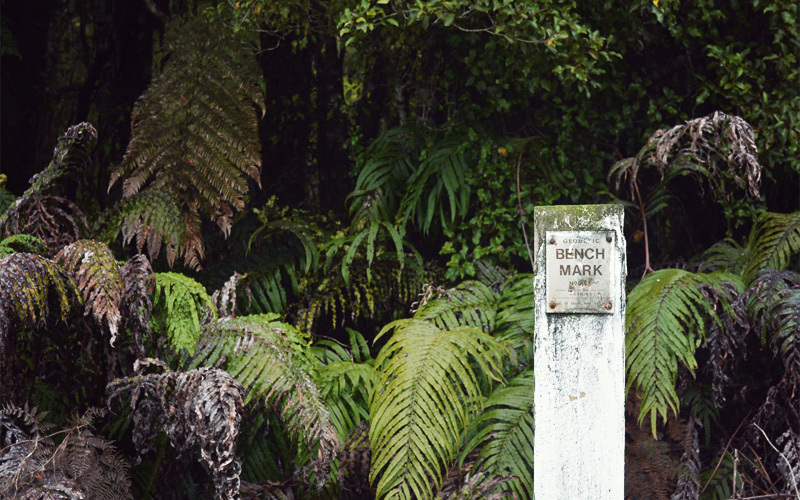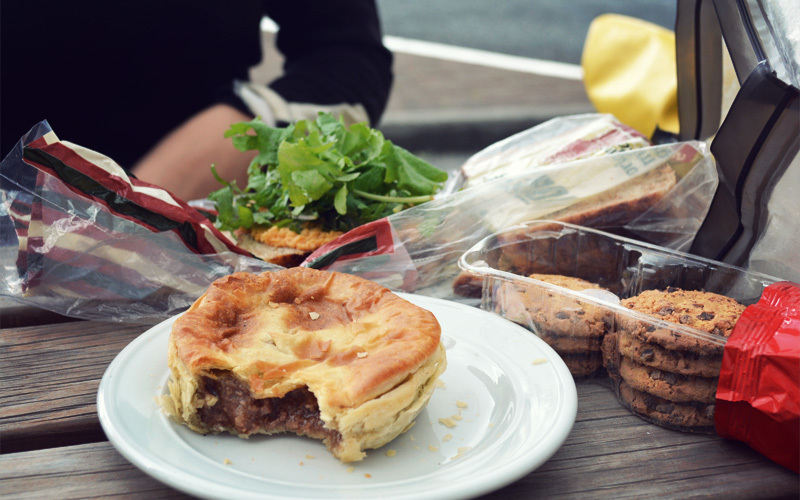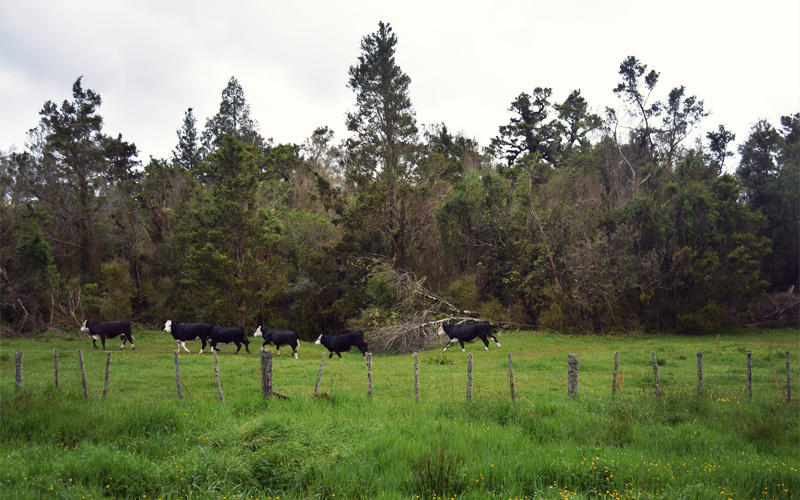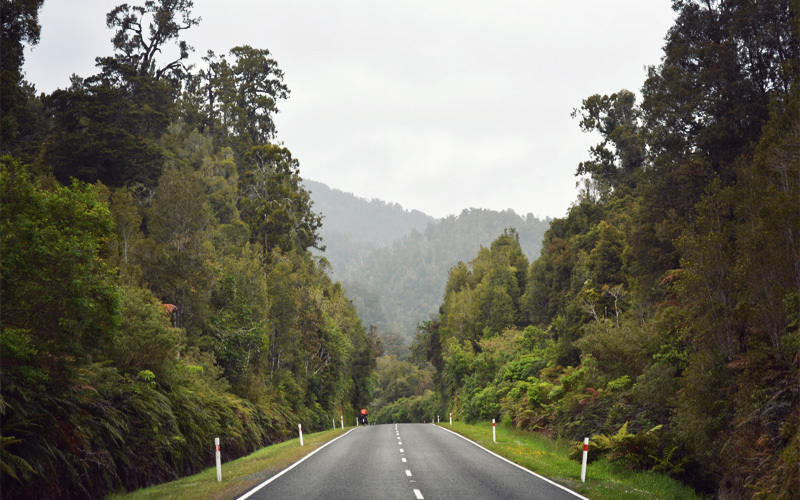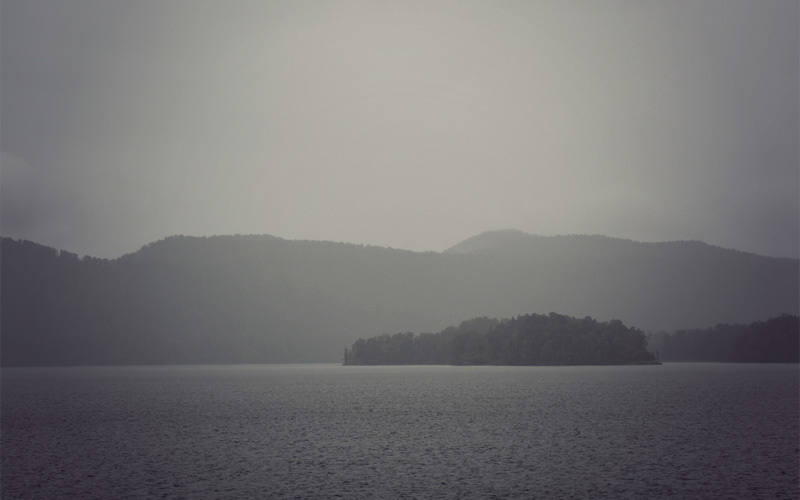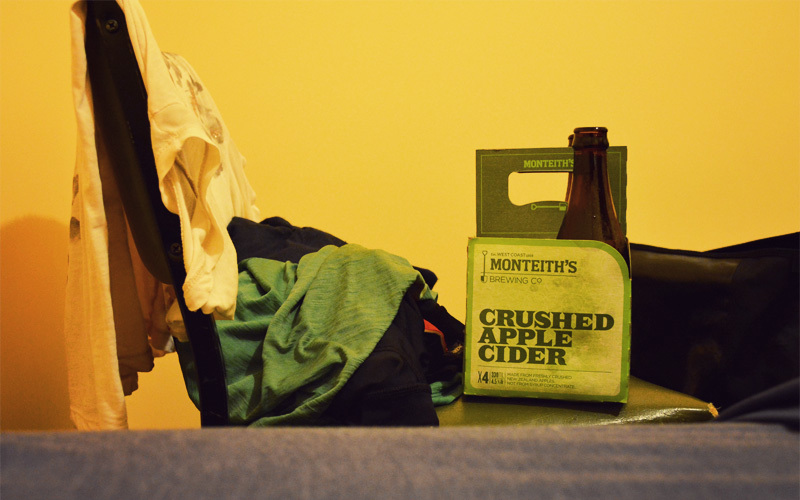November 10, 2014
Day 76: Lake Ianthe Campground to Franz Josef Glacier, NZ
Rain starts to fall not even thirty seconds after I wake up. It's light at first, but within moments it turns heavy, and that's all it takes for me to become convinced that the rest of the day will look entirely the same, and that we'll be soaked by the time we reach Hari Hari ten miles down the road.

| Heart | 1 | Comment | 0 | Link |
But in the end the rain lets up just before we're about to climb outside and resign ourselves to a wet fate. What we find instead is a calm and pleasant morning, where low clouds work their way into the pockets and folds of the hills and the lower clouds hang motionless above the valley floor. Rather than think about how drenched we're getting, we have the chance to enjoy vivid waking dreams about French toast and butter and powdered sugar, give voice and ridiculous anthropomorphized conversations to the ducks that waddle past in the fields next to the highway, and pedal across long one-lane bridges that run over rushing rivers that look like a mix of turquoise and sapphire. Thanks New Zealand, you're the best!
Powered by apples and a mince pie, respectively, Kristen and I crank out easy miles, which gives our minds the chance to wander and think about things other than cycling. When we stop for a break in a gravel patch just off the highway, we discover something critical: we've been riding for seventy-six days, and today's the time we finally realize that all of the cows we've seen between here and Portland have been naked, every last one of them, just giant herds of furry-assed nudists standing alongside almost every road we've traveled so far. Same goes for the sheep. We can never look at livestock in the same way again.
At one point during the long grind of a steep and winding push over a mountain, we start to wish for the climbing to stop. But rather than complain in some whinier, more entitled version of our normal voices, we call out toward the highway using what can only be described as the most horrendous and offensive Southern United States accent anyone has so far been able to come up with. It's terrible and we know it. But it's as if some control mechanism deep within our brains has permanently malfunctioned, so that not only do our thoughts head into more ludicrous directions more often, but also that when they now reach the point where they'd normally get filtered, they instead continue out into the world.
What's even stranger is that our strategy for ending the hills seems to be effective. When I thought about riding the coast of a mountainous country like New Zealand, I imagined endless steep climbs along jagged cliffs with the surf crashing to shore far below and a hundred tourists taking photos with terrible composition using their iPads at every pullout. But for most of today we ride on the flats and the gentle rises of a valley, among farmhouses and paddocks and so many naked cows. Even though we see huge hills all around, and have this ever-present fear that we're about to round a corner and start climbing over all of them in succession, the flats continue almost without an interruption.
In the yard of every home we see above-ground tanks of black or dark-green plastic that are big enough to swallow up a compact car. These tanks always sit next to the home, and always have pipes running into them from the home's gutters. Back in Greymouth we learned that most houses out here aren't connected to a well or a town water supply, but rather get all of their household water only from what falls out of the sky. Soon we figure out first hand how this kind of arrangement is possible.
When the rain first comes, it's the friendly kind of rain, the kind that's so light it doesn't fall straight down, but sort of dances on the breeze as it heads toward the ground. It hardly makes a noise as it hits our rain jackets, there's no chance it will soak our gloves, and even though the day isn't all that warm, there isn't enough wetness to turn us cold. If anything, the satisfaction of riding through the elements instead of letting them stop us feels like a small but satisfying victory.
This does not last. The rain's volume turns up in such a subtle way that it's almost imperceptible, so that it feels like a surprise when we realize that, hey, we're riding in a rainstorm. And we are. Our shoes are the first to go, followed in short order by our gloves. Our rain jackets and pants repel as much as they can, but soon our forearms and the tops of our thighs begin to stick to the material intended to keep them dry, and we know that the game is lost. All of the nastiness that's been collecting in my helmet for the last week liquefies, drips down my forehead, and forms into big drops that leak into the corners of my eyes with a burn that feels chemical. I blot them away in between unsuccessful attempts to try and identify what's coming up behind us using a mirror blurred with water droplets. By the time we roll into the living, breathing tourist trap that is the town of Franz Josef Glacier we've reached the point of saturation, where it no longer matters how hard the rain falls, or for how long, because it isn't possible for us to become more wet than we already are. When I take off the fleece glove from my left hand and give it a squeeze, a thick pool of yellow-brown water forms on the sidewalk next to my front tire.
With the rain showing no sign of ending, either today or tomorrow, we check into a backpackers for two nights and begin the long process of drying out. We do this among Germans playing Monopoly, Germans eating sausages, and Germans watching the national news, which is a broadcast best described by whatever word you'd use to explain something that's beyond coma-inducing. We like to joke about how many Germans we see traveling around here, but the health of tourism in this country would take a serious hit if there were ever some sort of international schnitzel incident and they were all of a sudden not allowed to enter the country. If the French, the Dutch, and Americans were also shut out, two-thirds of the backpackers would go out of business within weeks.
Afternoon turns into evening, which then turns into night, and throughout all of it the rain pours from the sky in buckets and waves and torrents. We expect that this will be the sound to carry us off into sleep, but we're way off. Instead we hear the coughing and hacking and sputtering of, you guessed it, a German guy, who takes a shower in the bathroom that's right next to our sleeping room, and who from our careful analysis seems not to understand that the stream of water shooting out from the pipe in the wall is meant to go on his head and his body, not straight down his throat.
Today's ride: 55 miles (89 km)
Total: 2,499 miles (4,022 km)
| Rate this entry's writing | Heart | 2 |
| Comment on this entry | Comment | 0 |
